When one squirrel is released, another arrives! 🔄 🌰
Shortly after we successfully released September’s Patient of the Month, a charming melanistic squirrel, we welcomed yet another unique baby. (Baby season ain’t over til the fat squirrel sings!) Meet Eastern Gray Squirrel 24-984, a slightly asymmetrical yet still adorable patient.
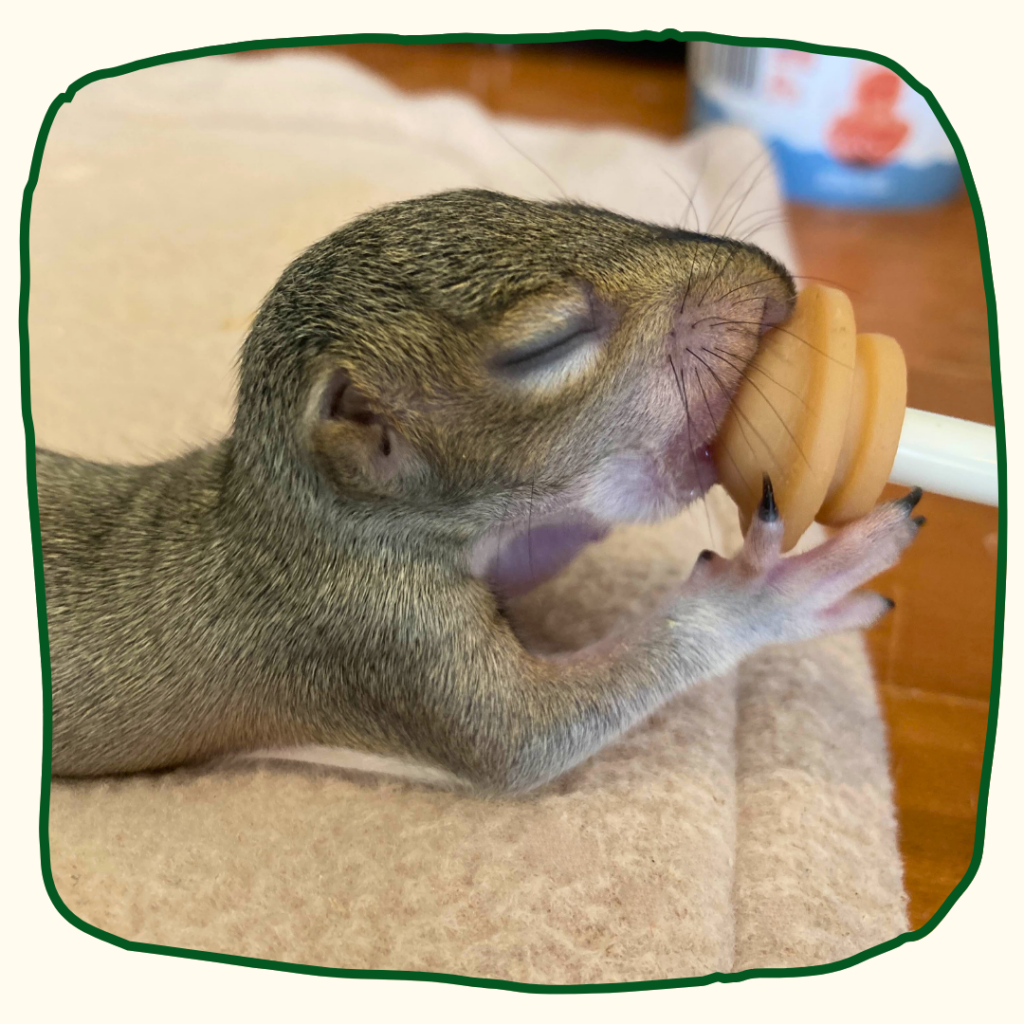
This young male squirrel originally arrived at the Sanctuary after a bumpy start to life. His finders in Campbell County were looking at their yard when they saw a mother squirrel scurry up a tree and accidentally drop one of her babies. Unfortunately, instead of attempting to reunite mother and baby, they took him inside and fed him puppy milk. Even with the best intentions, feeding a young squirrel improper formula can seriously affect their delicate digestive system. 24-984 required our professional care as a result.
A quick reminder: don’t try wildlife rehab at home, folks! If you find a baby squirrel, keep in mind that often the best course of action is to provide the baby with a heat source and leave it at the base of the nearest tree. Mom might just come back! Check out this video of a successful renesting we assisted with from this past spring.
Upon arrival at the Sanctuary, our staff noticed 24-984 was a little different: his right ear was missing. 👂Well, the actual internal structures are just fine. He is simply missing his pinna, the protruding flap of skin and cartilage that funnel sound into the inner ear. It’s unclear if this was a congenital deformity or related to physical trauma.
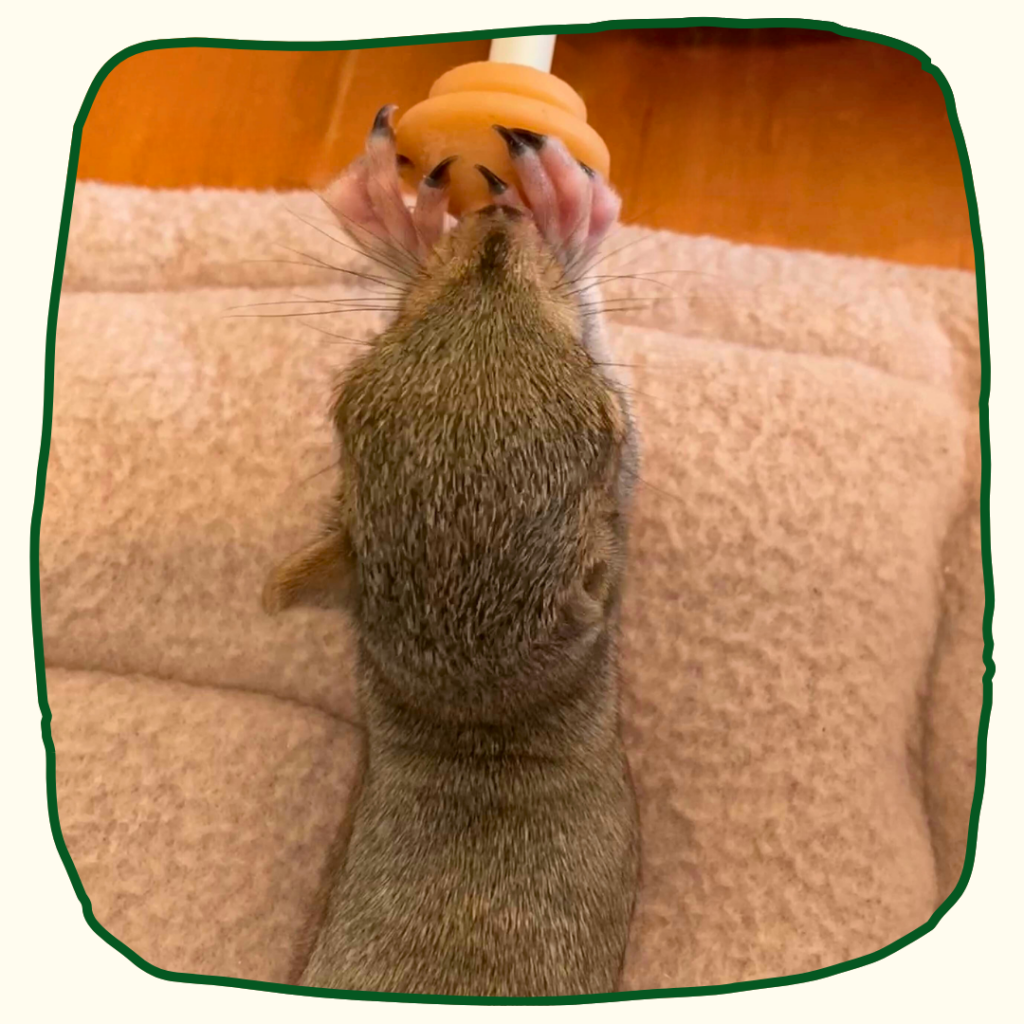
Unfortunately, 24-984 also had some concerning lacerations from his big fall down the tree. 😔 We transferred him to our friends at the Wildlife Center of Virginia for a few days of veterinary care before he was thankfully cleared to return to the Sanctuary for longterm rehabilitation. We are thrilled to share that he is thriving so far in our care and has nearly doubled his size in just two weeks. The photos above show off his missing ear better, but the photo below is what he actually looked like upon intake!
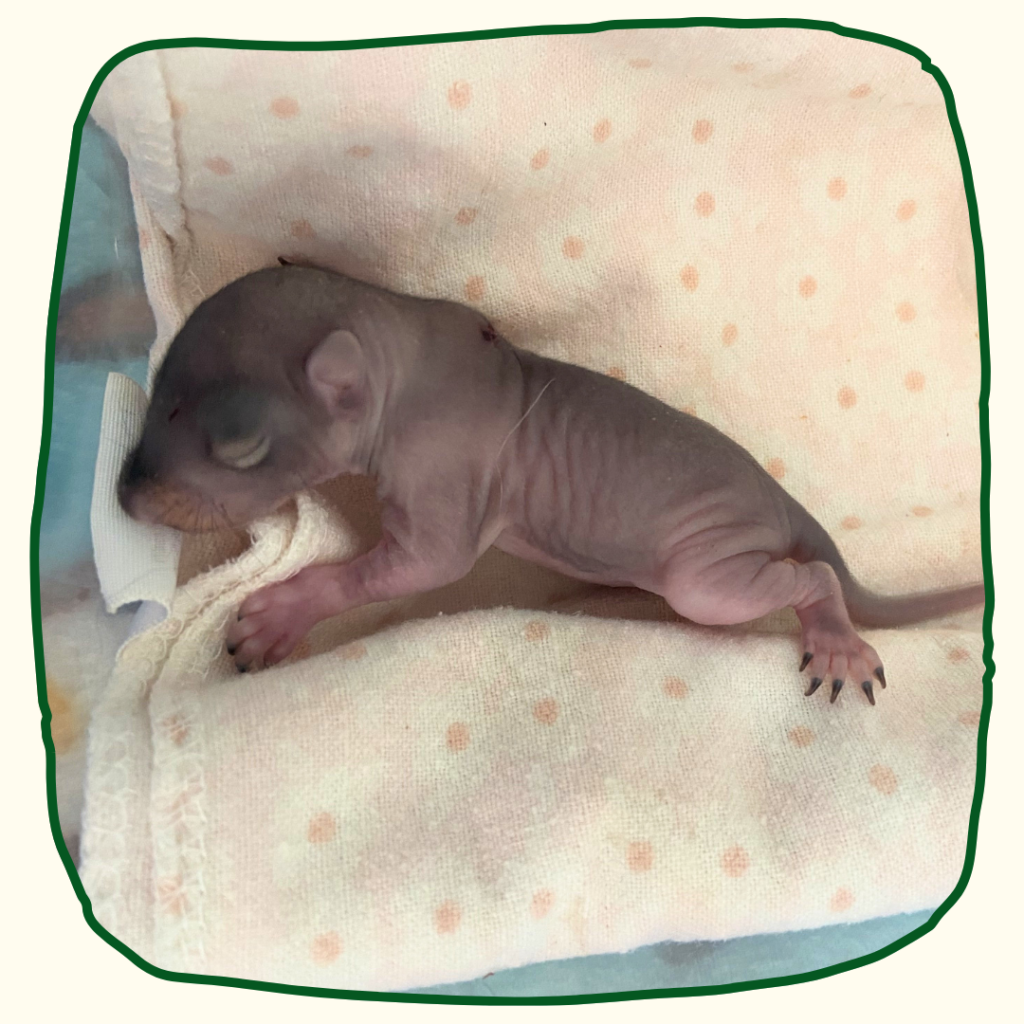
Luckily, his missing pinna should not prevent him from being released. Squirrels like 24-984 rely on a combination of sharp senses, including a wide field of vision, sensitivity to higher-frequency sounds, and a strong sense of smell. They even use whiskers (called vibrissae) to sense nearby obstacles as they navigate trees and underbrush. That missing pinna should not significantly compromise any of these skills needed for a successful, squirrelly life in the wild. However, infant animals still trickling into care will not be release-ready with enough time to cache nuts and prepare for winter’s food scarcity. This individual and any other late-season youngsters will stay in our professional care until spring!
While we don’t name patients at RWS, we can’t help but admit that this little one has inspired a lighthearted nickname among our staff: “Vincent Van Squirrel.” This is, of course, a reference to Van Gogh’s own missing right ear. On second thought, though, who’s to say that 24-984 couldn’t also be a talented Post-Impressionist painter? 👨🎨
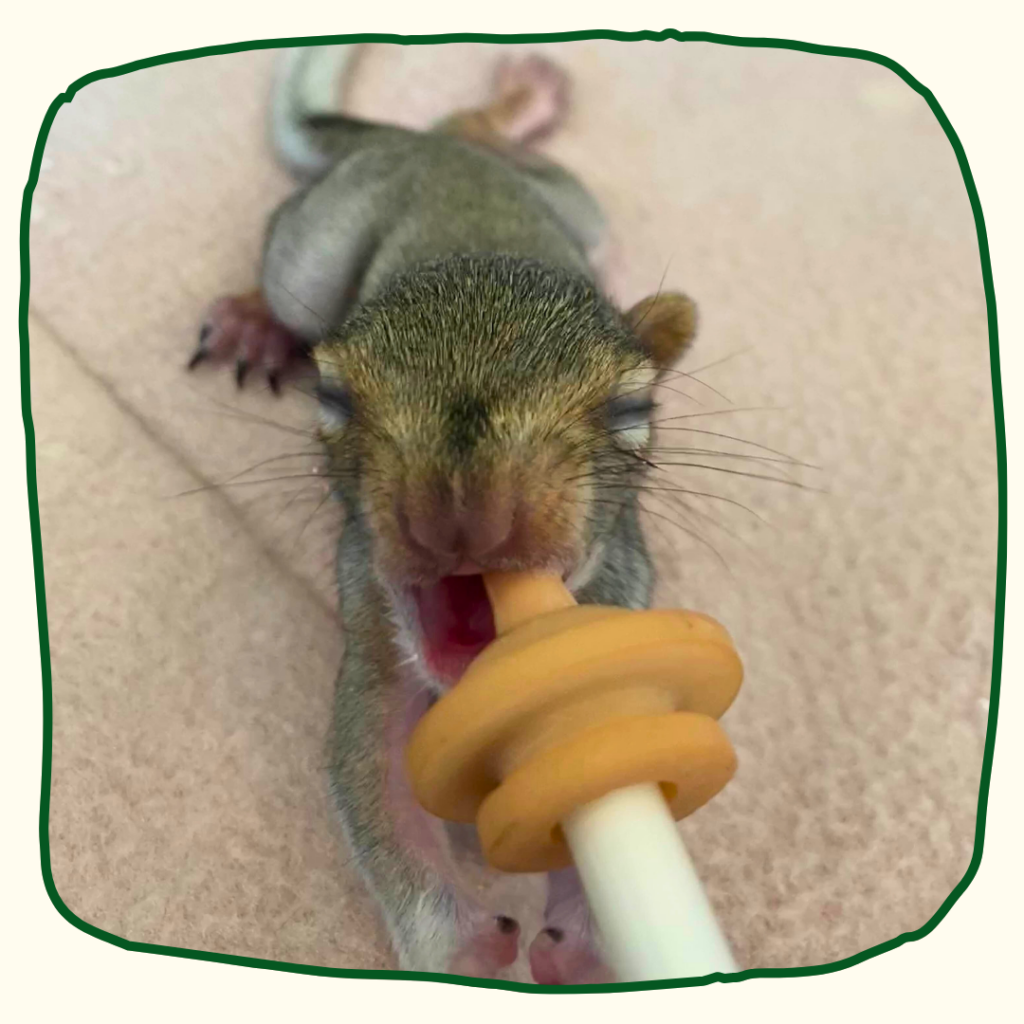
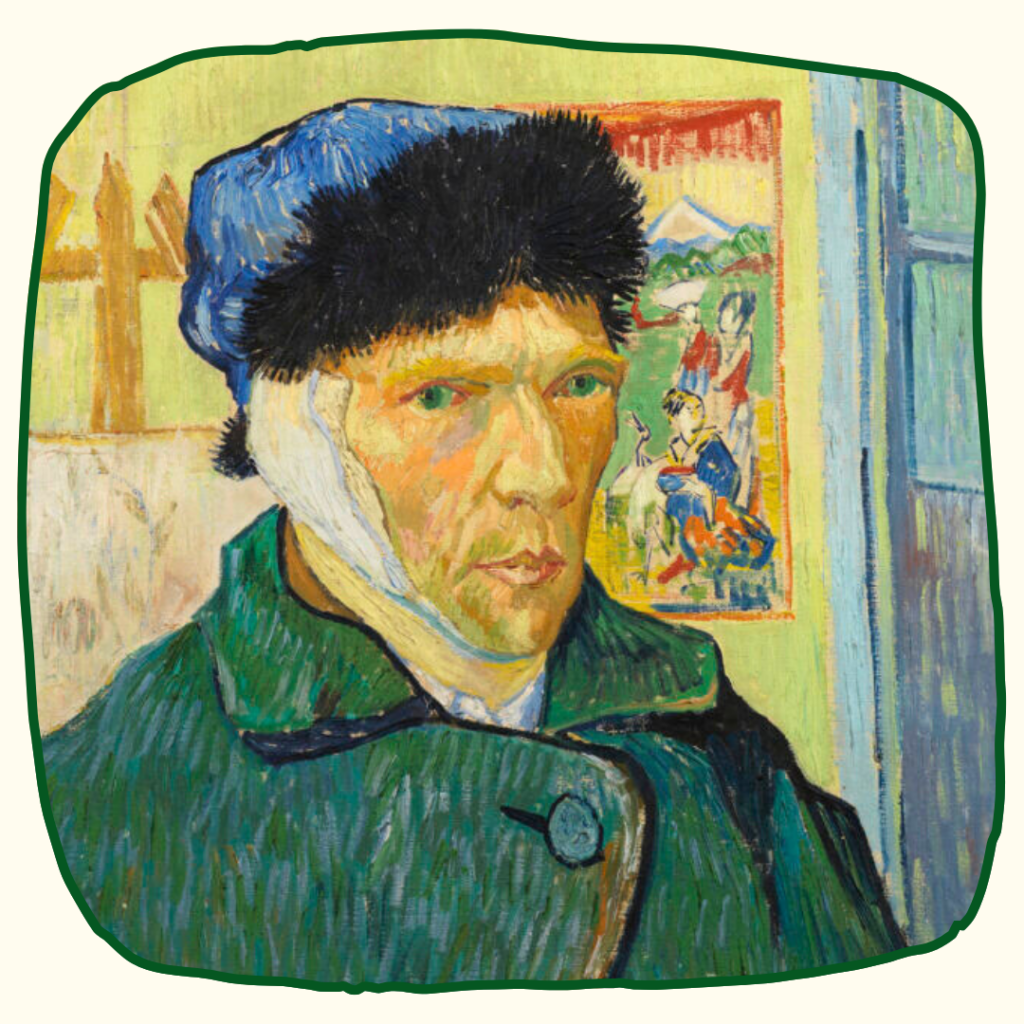
Though our team is undeniably exhausted from treating nearly 1,000 animals this year for the first time in the Sanctuary’s history, we’re still working around the clock to ensure late season babies like this one are getting the second chance they deserve at a life in the wild.
Thank you for supporting us by reading 24-984’s story!
November 15, 2024
Published:
Be the first to comment!